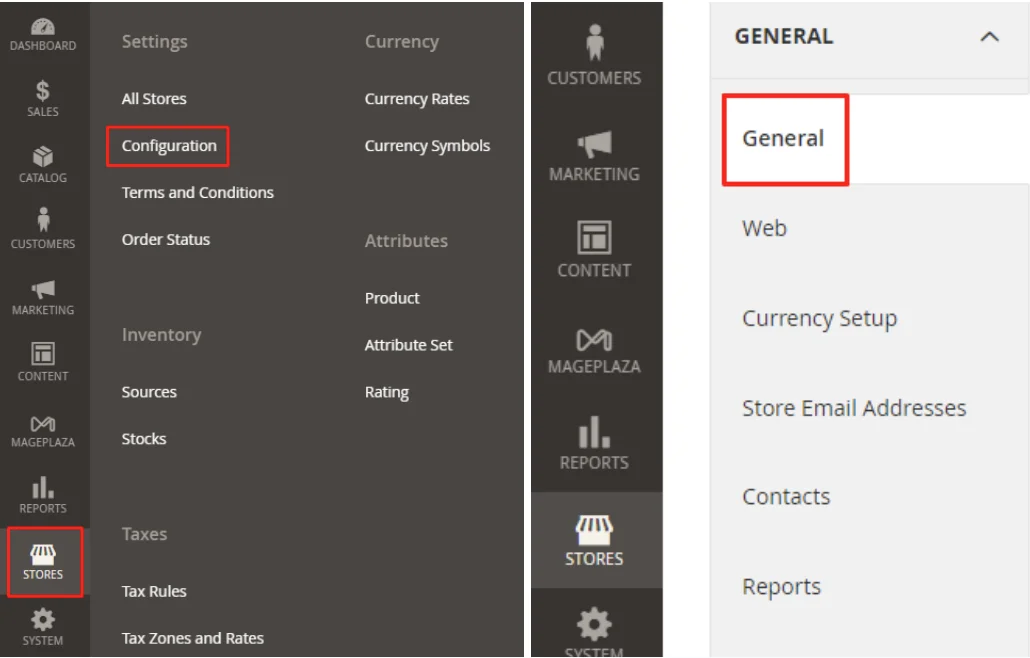Hyvä Theme is Now Open Source: What This Means for Magento Community - Mageplaza
Hyvä is now Open Source and free. Discover what changed, what remains commercial, how it impacts the Magento ecosystem, and how to maximize its full potential.
Cookies help us enhance your experience on our site by storing information about your preferences and interactions. You can customize your cookie settings by choosing which cookies to allow. Please note that disabling certain cookies might impact the functionality and features of our services, such as personalized content and suggestions. Cookie Policy
Cookie PolicyThese cookies are strictly necessary for the site to work and may not be disabled.
InformationThese cookies are strictly necessary for the site to work and may not be disabled.
| Cookie name | Description | Lifetime | Provider |
|---|---|---|---|
| _ce.clock_data | Store the difference in time from the server's time and the current browser. | 1 day | Crazy Egg |
| _ce.clock_event | Prevent repeated requests to the Clock API. | 1 day | Crazy Egg |
| _ce.irv | Store isReturning value during the session | Session | Crazy Egg |
| _ce.s | Track a recording visitor session unique ID, tracking host and start time | 1 year | Crazy Egg |
| _hjSessionUser_2909345 | Store a unique user identifier to track user sessions and interactions for analytics purposes. | 1 year | HotJar |
| _hjSession_2909345 | Store session data to identify and analyze individual user sessions. | 1 day | HotJar |
| apt.uid | Store a unique user identifier for tracking and personalization. | 1 year | Mageplaza |
| cebs | Store user preferences and settings. | Session | Mageplaza |
| cf_clearance | Store a token that indicates a user has passed a Cloudflare security challenge. | 1 year | Cloudflare |
| crisp-client | The crisp-client/session cookie is used to identify and maintain a user session within the Crisp platform. It allows the live chat system to recognize returning users, maintain chat history, and ensure continuity in customer service interactions. | Session | Crisp |
| _ga | Store a unique client identifier (Client ID) for tracking user interactions on the | 2 years | |
| _ga_7B0PZZW26Z | Store session state information for Google Analytics 4. | 2 years | |
| _ga_JTRV42NV3L | Store session state information for Google Analytics 4. | 2 years | |
| _ga_R3HWQ50MM4 | Store a unique client identifier (Client ID) for tracking user interactions on the website. | 2 years | |
| _gid | Store a unique client identifier (Client ID) for tracking user interactions on the website. | 1 day | |
| _gat_UA-76130628-1 | Throttle the request rate to Google Analytics servers. | 1 day |
Advertising cookies deliver ads relevant to your interests, limit ad frequency, and measure ad effectiveness.
InformationAdvertising cookies deliver ads relevant to your interests, limit ad frequency, and measure ad effectiveness.
| Cookie name | Description | Lifetime | Provider |
|---|---|---|---|
| _gcl_au | The cookie is used by Google to track and store conversions. | 1 day | |
| __Secure-3PAPISID | This cookie is used for targeting purposes to build a profile of the website visitor's interests in order to show relevant and personalized Google advertising. | 2 years | |
| HSID | This security cookie is used by Google to confirm visitor authenticity, prevent fraudulent use of login data and protect visitor data from unauthorized access. | 2 years | |
| __Secure-1PSID | This cookie is used for targeting purposes to build a profile of the website visitor's interests in order to show relevant and personalized Google advertising. | 2 years | |
| SID | This security cookie is used by Google to confirm visitor authenticity, prevent fraudulent use of login data and protect visitor data from unauthorized access. | 2 years | |
| APISID | This cookie is used by Google to display personalized advertisements on Google sites, based on recent searches and previous interactions. | 2 years | |
| __Secure-1PAPISID | This cookie is used for targeting purposes to build a profile of the website visitor's interests in order to show relevant and personalized Google advertising. | 2 years | |
| __Secure-3PSID | This cookie is used for targeting purposes to build a profile of the website visitor's interests in order to show relevant and personalized Google advertising. | 2 years | |
| SSID | This cookie is used by Google to display personalized advertisements on Google sites, based on recent searches and previous interactions. | 2 years | |
| SAPISID | This cookie is used by Google to display personalized advertisements on Google sites, based on recent searches and previous interactions. | 2 years | |
| __Secure-3PSIDTS | This cookie collects information about visitor's interactions with Google services and ads. It is used to measure advertising effectiveness and deliver personalised content based on interests. The cookie contains a unique identifier. | 2 years | |
| __Secure-1PSIDTS | This cookie collects information about visitor's interactions with Google services and ads. It is used to measure advertising effectiveness and deliver personalised content based on interests. The cookie contains a unique identifier. | 2 years | |
| SIDCC | This security cookie is used by Google to confirm visitor authenticity, prevent fraudulent use of login data, and protect visitor data from unauthorized access. | 3 months | |
| __Secure-1PSIDCC | This cookie is used for targeting purposes to build a profile of the website visitor's interests in order to show relevant and personalized Google advertising. | 1 year | |
| __Secure-3PSIDCC | This cookie is used for targeting purposes to build a profile of the website visitor's interests in order to show relevant and personalized Google advertising. | 1 year | |
| 1P_JAR | This cookie is a Google Analytics Cookie created by Google DoubleClick and used to show personalized advertisements (ads) based on previous visits to the website. | 1 month | |
| NID | Show Google ads in Google services for signed-out users. | 6 months |
Analytics cookies collect information and report website usage statistics without personally identifying individual visitors to Google.
InformationAnalytics cookies collect information and report website usage statistics without personally identifying individual visitors to Google.
| Cookie name | Description | Lifetime | Provider |
|---|---|---|---|
| _dc_gtm | Manage and deploy marketing tags through Google Tag Manager. | 1 year | |
| 1P_JAR | Gather website statistics and track conversion rates for Google AdWords campaigns. | 1 month | |
| AEC | 1 month | ||
| ar_debug | Debugging purposes related to augmented reality (AR) functionalities. | 1 month | Doubleclick |
| IDE | The IDE cookie is used by Google DoubleClick to register and report the user's actions after viewing or clicking on one of the advertiser's ads with the purpose of measuring the effectiveness of an ad and to present targeted ads to the user. | 1 year | Doubleclick |
| ad_storage | Enables storage, such as cookies (web) or device identifiers (apps), related to advertising. | 1 year | |
| ad_user_data | Sets consent for sending user data to Google for online advertising purposes. | 1 year | |
| ad_personalization | Sets consent for personalized advertising. | 1 year | |
| analytics_storage | Enables storage, such as cookies (web) or device identifiers (apps), related to analytics, for example, visit duration. | 1 year |

i18n (internationalization) is a crucial feature in Magento 2 that allows your e-commerce store to support multiple languages and regional settings, ensuring a wider reach and enhanced user experience. Understanding what i18n is and how to implement it effectively can significantly improve the accessibility and appeal of your store.
This guide will cover the meaning of i18n in Magento 2, where to place i18n files, the structure of these files, and how to use them. We’ll also provide important notes to help you integrate i18n seamlessly into your Magento 2 store.

i18n in Magento 2 stands for internationalization, a key process that lets you translate your store into different languages, making it accessible and user-friendly for customers from around the world. It allows you to offer a customized shopping experience by supporting multiple languages and regional settings.
Implementing i18n in Magento provides several benefits:
1. Global Reach: Support multiple languages, allowing you to cater to a global audience.
2. Increased Sales: Attract and retain customers from different regions by presenting content in their preferred language.
3. Competitive Advantage: Help differentiate your store from competitors by providing multilingual support.
4. Compliance: Ensure compliance with regional language requirements and regulations.
5. Improved Customer Support: Facilitate better communication with international customers through their native language.
6. Customizable Content: Allow for tailored marketing messages and product information based on regional preferences.
7. Scalability: Provide a scalable solution for expanding into new markets without redesigning the store.
8. Search Engine Optimization: Enhance SEO by offering localized content, potentially improving search rankings in different regions.
Package: app / i18n /
Module: **
Theme:
**
**<current_theme_dir> / i18n /** (applied only to the current theme)
The i18n folder contains dictionary files with a (.csv) extension, where the filename corresponds to the locale code of the target language (with Magento’s default locale being en_US).
For example: en_AU.csv, de_DE.csv, km_KH.csv, etc.
These (.csv) files in the i18n folder typically include at least two columns:
Column 1: Phrase, the original string in the default locale (en_US).
Column 2: Translation, the matching string in the target locale or within that specific locale.
For example: “Login”, “Einloggen”
To implement i18n for localization in Magento 2, follow a series of steps to ensure your site displays content in the desired language. In this blog, we will take German as an example for demonstrating how to set up and use translations for a language. You can do the same with other languages.
Step 1: Install a new language pack (e.g., de_DE).
Step 2: Locate and download the language pack by searching with the keywords: **‘github magento 2 language
For example: github magento 2 language de_DE.
Step 3: Place the downloaded language pack in: app/i18n/[your package name]/de_DE/de_DE.csv.
Step 4: Configure the locale in the admin panel by navigating to: Magento Admin > STORES > Configuration > GENERAL > General

Scroll down to Locale Options, and set Locale to German (Germany).

Step 5: Execute the deployment command using the language locale:
php bin/magento setup:static-content:deploy de_DE.
Step 6: Remove the cache either through the admin panel or by running the command:
php bin/magento cache:flush.
For i18n to function correctly, ensure the translated text is formatted as follows:
In .phtml files
Place the text within the **__(‘
For example: <?php echo __(‘Login’); ?>.
In email templates
Use the structure:
In UI component templates
Format the text as:
<span data-bind="i18n: 'string name'"></span>
<!-- ko i18n: 'String name' --> <!-- /ko -->
<input type="text" data-bind="attr: {placeholder: $t('String name')}"/>
In JavaScript files Include the mage/translate library:
define(['jquery', 'mage/translate'], function ($) { ... });
Use the function: $.mage.__(‘String name’); to add text.
i18n in Magento 2 allows your store to support multiple languages, enhancing its global appeal. Properly placing and using i18n files ensures accurate translations across your store.
For any questions or assistance with i18n setup, feel free to contact us.

Jacker is the Chief Technology Officer (CTO) at Mageplaza, bringing over 10 years of experience in Magento, Shopify, and other eCommerce platforms. With deep technical expertise, he has led numerous successful projects, optimizing and scaling online stores for global brands. Beyond his work in eCommerce development, he is passionate about running and swimming.
Related Post

Hyvä Theme is Now Open Source: What This Means for Magento Community - Mageplaza
Hyvä is now Open Source and free. Discover what changed, what remains commercial, how it impacts the Magento ecosystem, and how to maximize its full potential.





Holiday Marketing Hacks 2025 - How to Boost Sales for Magento 2 Stores? - Mageplaza
Discover the best 2025 holiday marketing strategies for Magento 2. Learn key trends, creative campaign ideas, and expert tips to increase seasonal sales.

Hyvä Theme is Now Open Source: What This Means for Magento Community - Mageplaza
Hyvä is now Open Source and free. Discover what changed, what remains commercial, how it impacts the Magento ecosystem, and how to maximize its full potential.





Holiday Marketing Hacks 2025 - How to Boost Sales for Magento 2 Stores? - Mageplaza
Discover the best 2025 holiday marketing strategies for Magento 2. Learn key trends, creative campaign ideas, and expert tips to increase seasonal sales.
